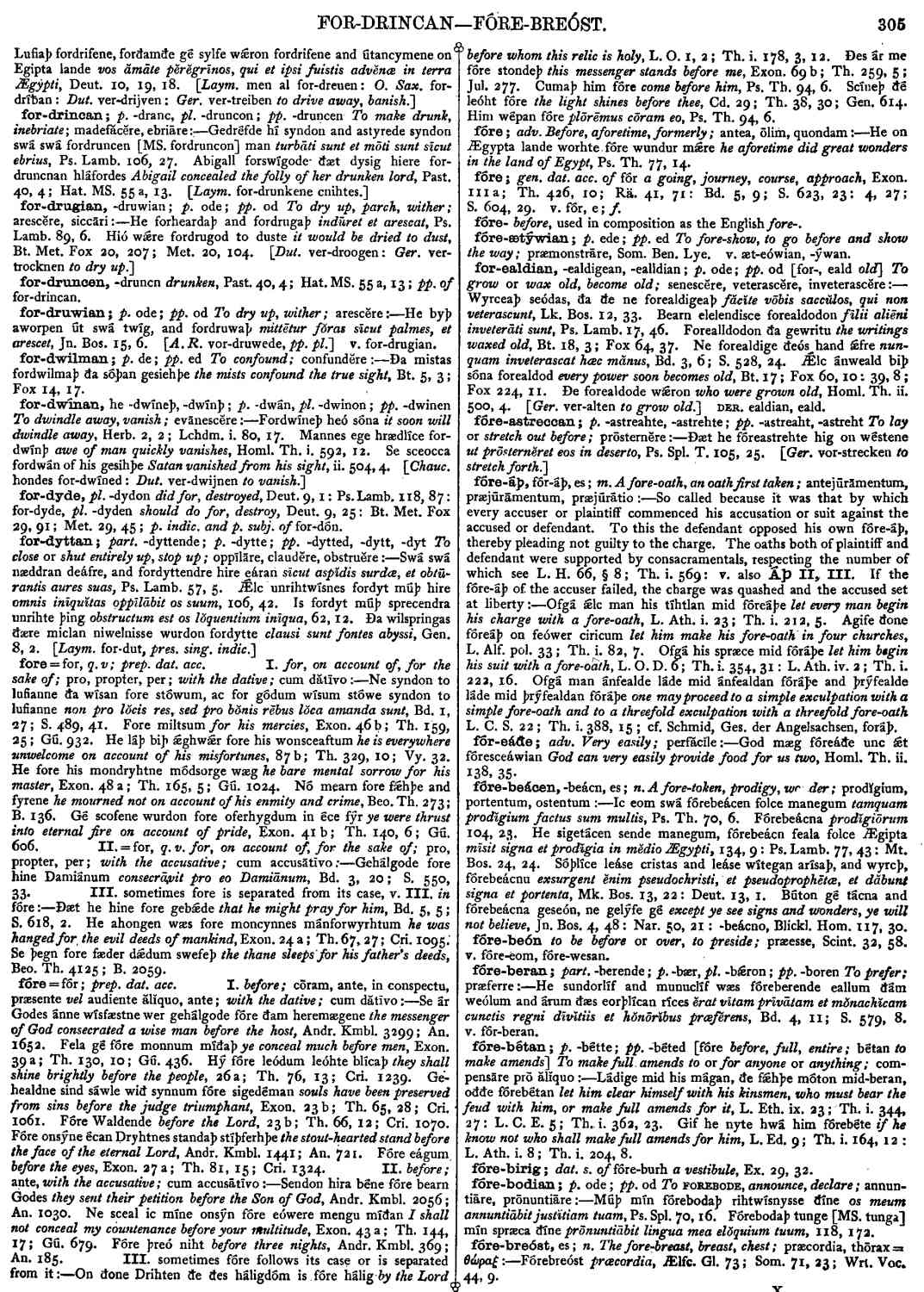fóre-áþ
- noun [ masculine ]
- L. H. 66, § 8 ;
- Th. i. 569 :
-
Ofgá ǽlc man his tíhtlan mid fóreáþe
let every man begin his charge with a fore-oath,
- L. Ath. i. 23 ;
- Th. i. 212, 5.
-
Agife ðone fóreáþ on feówer ciricum
let him make his fore-oath in four churches,
- L. Alf. pol. 33 ;
- Th. i. 82, 7.
-
Ofgá his spræce mid fóráþe
let him begin his suit with a fore-oath,
- L. O. D. 6 ;
- Th. i. 354, 31: L. Ath. iv. 2 ;
- Th. i. 222, 16.
-
Ofgá man ánfealde láde mid ánfealdan fóráþe and þrýfealde láde mid þrýfealdan fóráþe
one may proceed to a simple exculpation with a simple fore-oath and to a threefold exculpation with a threefold fore-oath
- L. C. S. 22 ;
- Th. i. 388, 15 ;
Bosworth, Joseph. “fóre-áþ.” In An Anglo-Saxon Dictionary Online, edited by Thomas Northcote Toller, Christ Sean, and Ondřej Tichy. Prague: Faculty of Arts, Charles University, 2014. https://bosworthtoller.com/11295.
Checked: 1